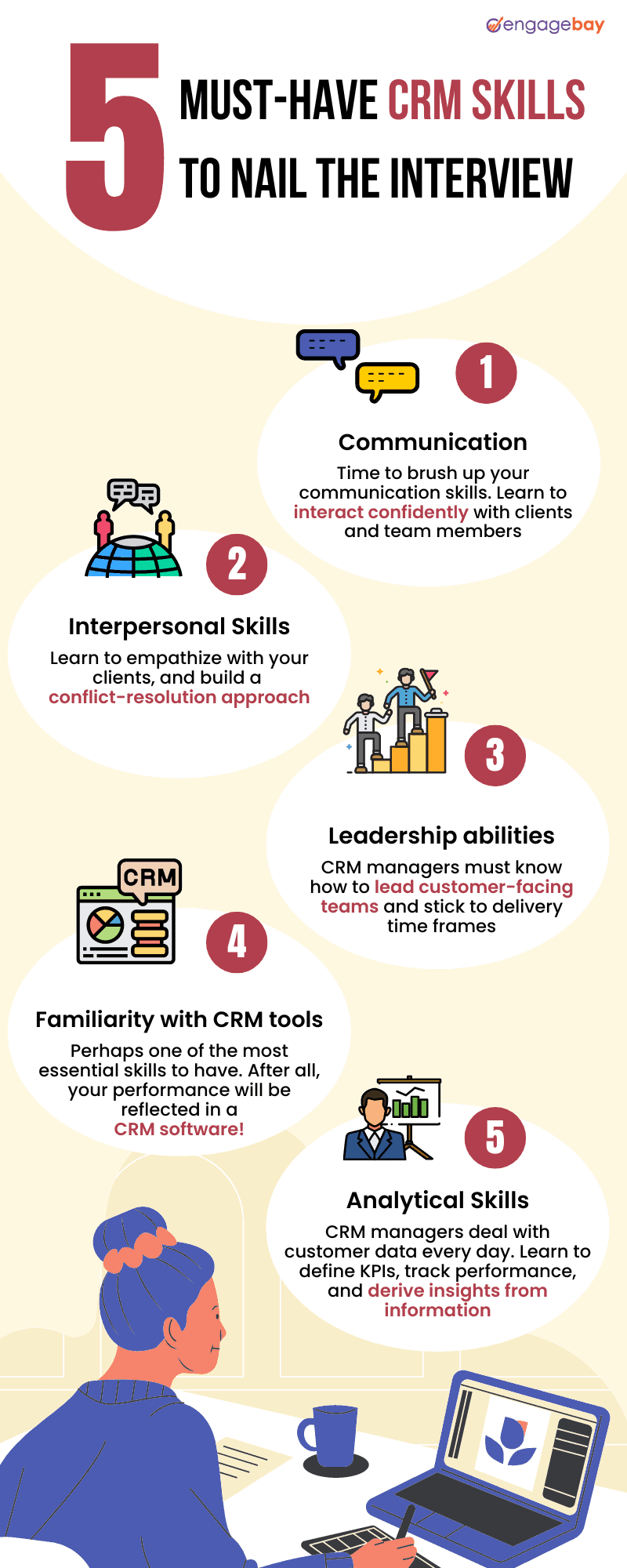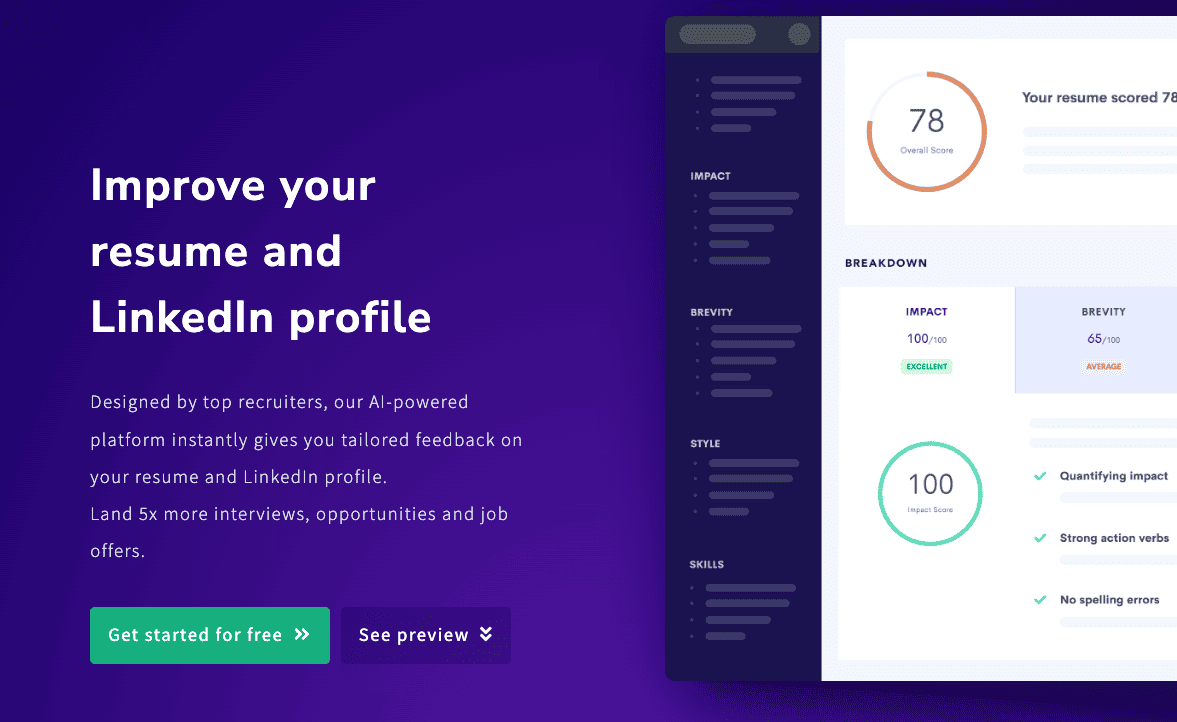Having a valuable CRM experience in your resume is like the chicken and egg dilemma. You can’t gain solid CRM experience without working, and you can’t land many CRM-related jobs without basic experience of how CRMs work.
Or can you?
Excellent CRM experience that catches attention in a resume goes beyond having a customer relations job. It involves highlighting compelling capabilities employers seek and the value you offer.
For individuals starting from scratch, this can be tricky to pull off. But not anymore. Why? We’ll be taking off the lid to uncover everything you need to know about CRM experiences from top to bottom.
In this guide, we’ll explore:
- What CRM experience is
- Why CRM experience matters
- What a good CRM experience looks like in a resume
- The CRM job market
- Salary of a CRM experience manager
- Must-have CRM-focused skills
- How to get CRM experience
- How to include CRM experience in your resume (without lying) 😉
- How to beat the applicant tracking system
Let’s start from the top.
Table of Contents
What is CRM Experience?
Before we get into the specifics of CRM experience, let’s define customer relationship management (CRM).
Customer relationship management is a strategy for building positive customer relationships from discovery to the post-purchase stage. It also often refers to technologies that help businesses with:
- Telephony
- Sales process
- Sales forecasting
- Deal management
- Lead management
- Project management
- Contact management
- Employee engagement
- Appointment scheduling
- Lead capturing and scoring
AND many more!
Over 80% of organizations use CRM for better sales reporting and process automation. If you’ve ever used CRM software or developed a basic CRM strategy that improved the bond between a customer and a brand, that’s CRM experience in a nutshell.
For a newbie, a quick CRM experience doesn’t have to be business-related. This could involve sending your friends new product updates based on their previous purchases. Or delivering thoughtful presents to specific colleagues you haven’t heard from to reconnect.
These are personal-level examples, and you’ll find tons of resources on EngageBay to help you improve your CRM skills and become a professional in no time. We’ll discuss these resources later on.
Why CRM Experience Matters
CRM offers many profitable returns when implemented correctly. With a good CRM experience, businesses can unlock multiple growth opportunities.
Companies that use CRM systems see an interesting trend:
- 17% increase in lead conversions
- 16% boost in customer retention,
- A whopping 21% improvement in productivity
Here are some of the main benefits of having experience with CRM data and why it means a lot to employers.
Improve customer satisfaction
Customer communication typically happens across multiple channels. Think Live Chat on websites, social channels, mobile apps, etc.
Each interaction presents an opportunity to create a personal connection with customers. When you have a quality CRM experience, you can tap into it to capture and track a customer’s basic contact information, demographics, purchase history, or previous complaints.
Armed with this customer data, delivering personalized experiences becomes easier. This means better follow-ups, timely anticipation of needs, and exceptional customer service skills to boost customer satisfaction and fuel customer retention.
Drive sales
Gaining key customer insights allows you to make data-driven decisions that drive sales. But without proper CRM experience, you don’t get a handle on customer information, your company loses revenue, and they lose the amount spent purchasing the CRM system.
These are nightmares for forward-thinking businesses, and it was the exact situation for an Alaskan fundraising team that missed out on critical data because they couldn’t use a complicated CRM software that cost $10,000/year.
Chew on that for a second … $10,000 per year.

$10k is a lot of money for a piece of software.
The worst part? You can’t use this kind of software to quickly learn the basics of using a CRM because they don’t have a free plan for you, and they are not so easy to use, according to the review.
On the contrary, you can gain all the CRM experience you need by jumping on the EngageBay free plan, which has a ton of functionalities and is also easy to use.

Increase productivity
Like in the Alaskan company, CRM automation can do more harm than good to productivity when implemented wrongly. Having CRM experience mitigates—or even eliminates— this problem. You can automate repetitive tasks, thereby saving massive time.
An all-in-one CRM solution like EngageBay takes you even further. You can go beyond sales to streamline activities across marketing and customer support for better productivity and customer engagement.
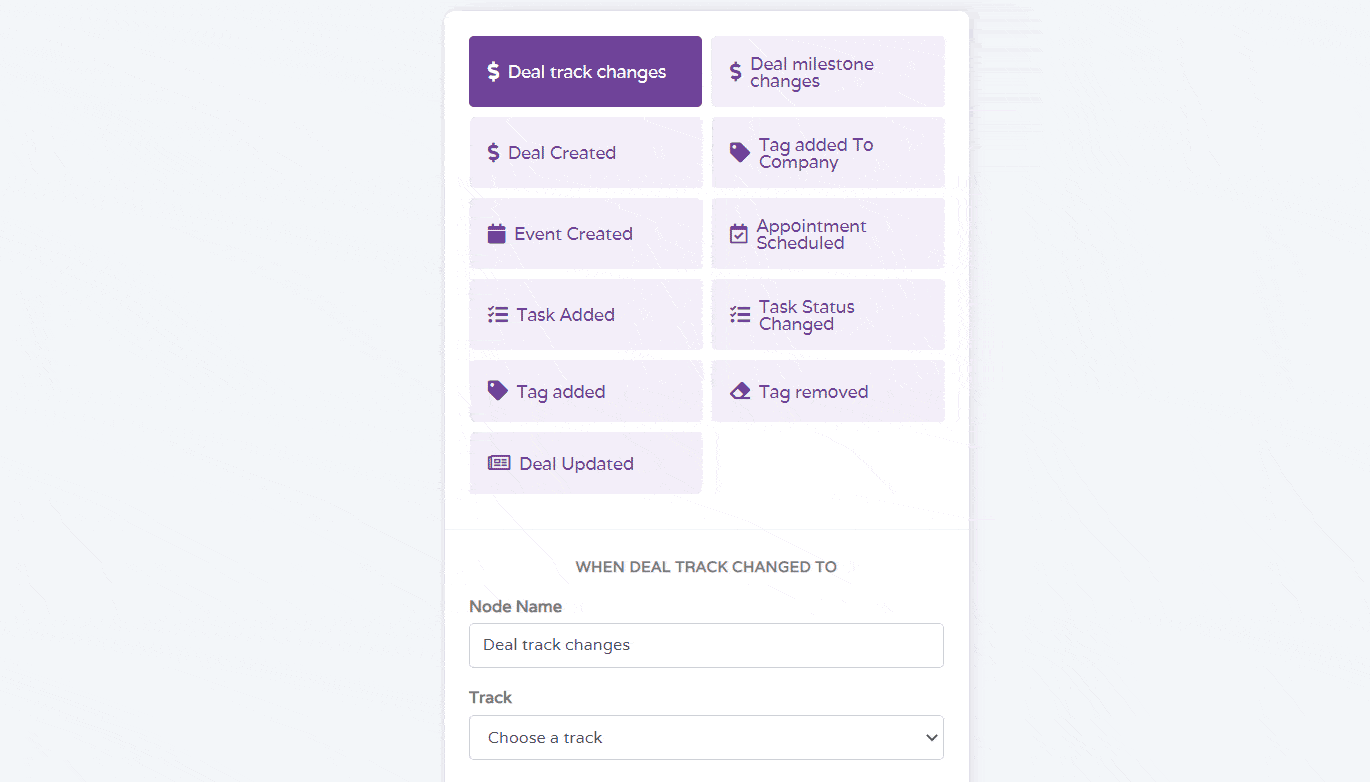
Enhance sales & marketing processes
Getting maximum results from CRM processes and tools relies heavily on your CRM experience. For one, it allows you to understand customer behavior, deliver highly targeted digital marketing campaigns, and track performance through your CRM.
Seasoned salespeople can even generate custom reports, build pipelines, and spot sales opportunities. Additionally, departments can collaborate by using their CRM to access information faster and close deals faster.
What Excellent CRM Experiences Look Like in Resumes
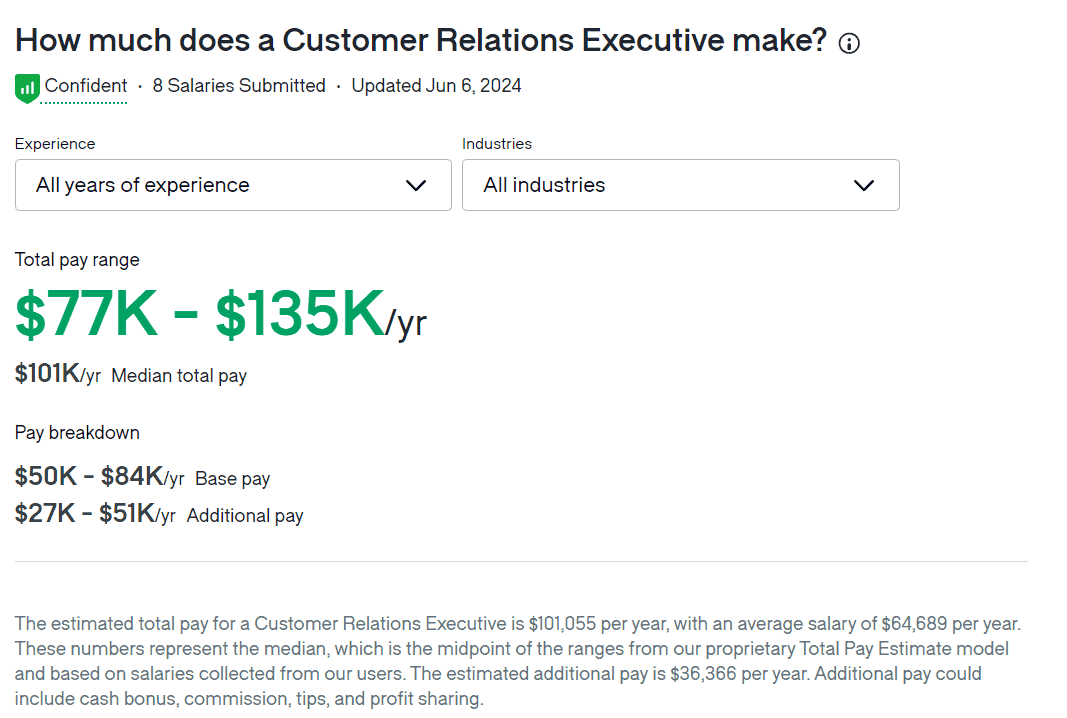
CRM experience involves performing relevant CRM duties.
Below, we’ll discuss some of these roles and responsibilities and what they look like in a resume.
Role: Customer Service Representative
Primary responsibility: Building customer relationships
Building and improving customer relationships make up the bulk of your CRM experience. As in the resume example above, you’ll deal with:
- Customer complaints
- Coordinating a personalized outreach
- Assisting with end-user software adoption
- Anticipating clients’ needs throughout their lifecycle.
This responsibility also includes understanding all aspects of existing services and products and their value to each customer segment, thus meeting customer expectations. Essentially, the activities you undertake should satisfy the customer’s needs and create a better customer experience.
👉Navigate the world of CRM automation software with ease. Our detailed guide gives you an overview of the best options available.
Role: CRM Manager
Primary Responsibility: Develop CRM strategies

Driving and meeting KPIs is a valuable CRM experience on resume that makes your resume format stand out. Some KPIs to look out for are:
- Reduction in customer acquisition costs
- Improvement in customer retention
- Increase in customer lifetime value
- Higher renewal rates
- Reduced length of sales cycles.
Each KPI depends on your goals. For instance, let’s say you work in a hypothetical firm that struggles with poor customer experience. Some CRM metrics to track are the net promoter score (NPS), customer churn, customer effort score (CES), and expansion revenue.
Role: CRM Specialist
Primary responsibility: To manage internal CRM implementation

Many CRM implementation horror stories stem from poor user adoption. In larger organizations, you may work with a CRM specialist / CRM administrator to speed up implementation. But in small to mid-sized businesses, you likely oversee the training of other teams to use the software.
Ideally, you may create internal usage guidelines, schedule training, and monitor adoption. CRMs like EngageBay have a detailed knowledge base with step-by-step guides that make usage of the EngageBay CRM a piece of cake.
How Popular are CRM Jobs?
Short answer: very popular.
As more businesses automate customer relations, the global CRM market size grows, promising a CAGR of 13.3% from 2022 to 2030. With this growth comes more employment opportunities in the CRM space.
For example, LinkedIn has over 29,000 customer relations manager jobs listed within a week. Other related roles generate 20,000+ weekly listings as well within the platform.
These opportunities also exist on other platforms like Indeed where there are 164,000+ diverse CRM roles in the US alone.
You can filter results by experience level, educational qualifications, and salary estimates.

What is the Salary of a CRM Experience Manager?
According to Glassdoor, a CRM experience manager in the United States earns $102,130/yr as of January 2025.
ZipRecruiter reports a comparative salary between $60,000 and $154,000 yearly. This pay is typically for senior positions or experienced individuals.

Associate roles earn a bit less, averaging $33,583 per year. For a few, it can stretch up to $60,500.
Other technical roles like Microsoft Dynamics CRM consultants and Technical Relationship Managers rake in as high as $146,000/yr and $125,000/yr.
This shows you’re in a good position to earn fair compensation whichever path you choose.
What Are CRM Skills?
CRM skills encompass the management skills customer relationship managers must have to build rapport and lasting relationships with their customer base.
These include interpersonal, leadership, analytical, communication, and technical skills.
5 Must-have CRM Experience Skills for Resumes
To crack a customer-facing job interview, you’ll need more than just an impressive-looking CV.
Look at the essential skills you’ll need to master for any field of work that requires nurturing customer relationships.
1. Communication
CRM jobs require effective communication skills to help you interact confidently with clients and team members. You’ll see what I mean if you check out the job descriptions.
Your ability to write great emails, have phone conversations with customers, communicate technical steps to a non-technical audience, and share your ideas with management is vital.
Excellent communication undoubtedly relies on listening as well. CRM reps should be able to draw from the customer’s feedback to provide valuable assistance.
2. Interpersonal skills
While communication skills deal with expressing yourself, interpersonal skills include communication and attitude. It deals with empathy, your conflict resolution approach, and how well you get along with others.
For instance, let’s say you’re dealing with a frustrated customer who received a wrong order. Good interpersonal skills allow you to put yourself in the client’s shoes. It helps you proffer the best solution for the customer, which may be an immediate replacement rather than a refund.
3. Leadership abilities
CRM managers are often responsible for leading customer-facing teams and managing expectations. This entails:
- Giving and receiving feedback from team members and top management
- Setting SMART goals
- Empowering your team with tools, knowledge, and support
- Delegating responsibility
- Proactively managing delivery time frames
Here’s an example of how you can showcase leadership skills in your resume:
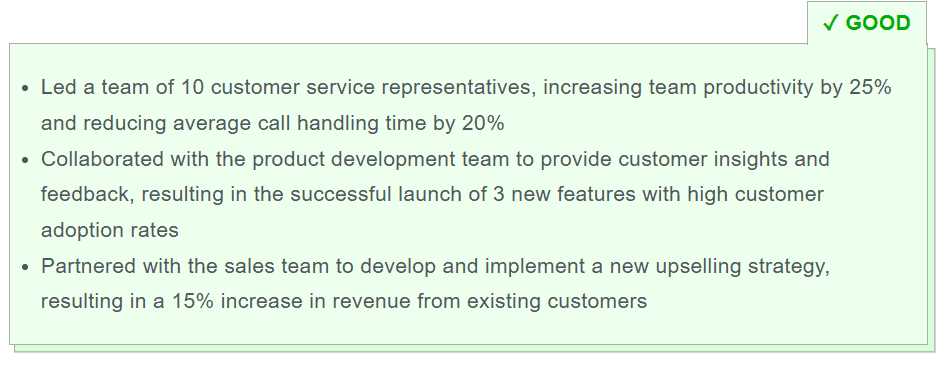
4. Familiarity with CRM software
CRM tools automate the processes involved in building customer relationships. You’ll often use these tools, so you should be familiar with the common ones in the industry.
Here are some of the best CRM software you should know:
EngageBay
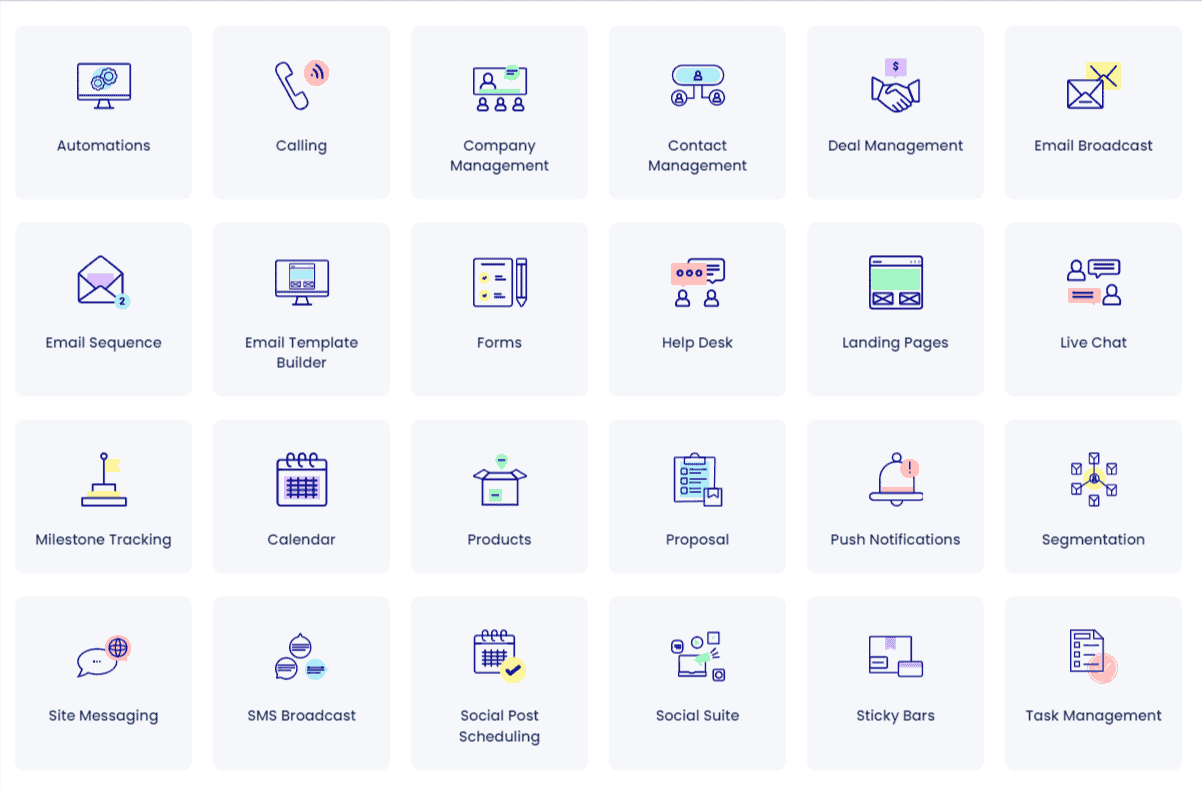
EngageBay is an all-in-one CRM software for marketing, sales, and customer service. It allows teams to perform a range of tasks, such as automating workflows, nurturing customer relationships, and delivering targeted marketing campaigns.
Its powerful, easy-to-use features make it ideal for both beginners, intermediates, and experts. EngageBay has a free plan with great features, making it a go-to option for anyone who wants to learn a lot about CRM.
HubSpot
Known as one of the leading CRM platform, HubSpot provides features like pipeline management, deal tracking, and data analysis.
The basic CRM features are free in HubSpot, but you’ll need a premium subscription to get the most out of it. HubSpot CRM is ideal for businesses of all sizes, from large-scale enterprises to small businesses.
Insightly
Insightly CRM allows you to route leads, streamline workflows, and manage email marketing.
You can also use its drag-and-drop feature to customize your dashboard for better data visualization. This software is ideal for small businesses.
Salesforce
Salesforce CRM is known for its extensive customization capabilities and integration options.
It offers features like lead management, sales forecasting, and customer service tools. Salesforce’s AI-powered analytics provide valuable insights to drive business growth. Suitable for businesses of all sizes, Salesforce offers various pricing tiers to fit different needs and budgets.
Microsoft Dynamics
Microsoft Dynamics CRM is designed to help businesses manage their customer interactions with features like sales automation, customer service processes, and marketing tools alongside advanced analytics and AI-driven insights.
The platform integrates with other Microsoft products, making it a powerful option for businesses already using the Microsoft ecosystem.
SAP
SAP CRM is designed for large enterprises that need extensive CRM capabilities. It offers comprehensive features for sales automation, customer service management, and marketing automation. SAP CRM integrates seamlessly with other SAP products and provides a unified solution for enterprise resource planning (ERP) and customer relationship management.
Its advanced analytics and AI tools help businesses make data-driven decisions.
5. Analytical skills
Customer relations managers rely on data to get a 360-degree throughout the customer journey/customer lifecycle. You should know how to define your KPIs, track performance, and uncover patterns. This skill is especially useful for analytical CRM roles.
Sharp analytical skills for a CRM manager include:
- Keeping up with industry news and trends
- Conducting CRM competitive research
- Developing effective customer relations strategies that drive results.
How to Get CRM Experience
The best way to get CRM experience is to get a CRM-related job. However, it’s rarely the easiest option or even the first step for beginners.
Below are additional ways to develop relevant skills and build your CRM experience.
1. Study available CRM resources
Studying resources on customer relationship management is a great way to start your journey. Thanks to the massive amount of information on the internet, you can find nearly every resource you need. This includes books from experienced professionals, articles, and video tutorials on what you’ll need to succeed.
On EngageBay, we have several free CRM-related resources. You can access our YouTube tutorials, Marketing Bay, Sales Bay, and Service Bay.
2. Take certification courses or training programs
Another way to gain CRM experience is through certification courses. These courses are great for dipping your feet in the water, and they show employers that you are familiar with CRM processes and can put your CRM knowledge to use.
You can try out Udemy CRM courses, starting with the basics and working up your way to the advanced programs. Then, slowly build your way up through Salesforce Trailhead or Hubspot Academy certifications.
3. Join internship programs
Courses and certifications are great for theoretical knowledge of CRM. However, the only way to learn how CRM works is through practical work. Look out for internships that require CRM skills and apply for them.
3. Join CRM communities
CRM communities allow you to make personal connections and network with professionals who might help build your career. You can ask questions, gain insights, make friends who will recommend you for a role, and also find open job positions.
While some communities are niched, others are general, with individuals across various business roles. Here are some communities to check out:
4. Volunteer
Volunteering is another smart way of acquiring hands-on CRM experience. You can get volunteer CRM jobs by searching for local non-profit organizations that need assistance. They may need help managing donor lists, building campaigns, and planning events.
Besides physical search, you can find the latest non-profit CRM volunteer opportunities online. While some allow you to search for related jobs, others have the functionality of filtering by location, like Catchafire, GozAround, VolunteerMatch, and UnitedWay.
How to Add CRM Experience to Your Resume

A well-written resume is your last stroke toward getting your CRM job. If you want help, there are several great professional writing resume services like Zipjob Reviews.
To get it right, you need to tailor it into a powerful asset that highlights your CRM experiences and captures the attention of your potential employer.
How to list CRM experience on your resume? Here are some ways to do it.
Basic information
Add your contact details at the top of your resume. List necessary information that makes it easy for hiring managers to find you.
This includes your phone number, personal email address, and social profiles (preferably LinkedIn). Leave off your marital status, date of birth, and headshot.
Professional summary
First impressions matter. That’s why you need this section to have a compelling hook that reels in the recruiter. A great professional summary highlights your relevant skills, experience, and outstanding achievements. Make sure you try out different resume formats to find out the one that makes the best impression.
Entry-level applicants with no work experience can write an objective statement instead. Summarize your transferable skills, achievements, and a career-transitioning sentence.
Assuming you’re transitioning from social media management to CRM roles, a sample career objective statement could be something like this:
“Creative and performance-driven Social Media Manager with 2+ years of experience in crafting winning strategies for eCommerce businesses. Increased engagement (63%) and social media sales (30%) within 8 months. Seeking to advance my career by joining the FIJI team as an entry-level CRM representative.”
Work experience
Once you’ve caught the hiring manager’s attention, it’s time to show them why you’re the right applicant.
Opt for your most recent and relevant experiences over older projects.
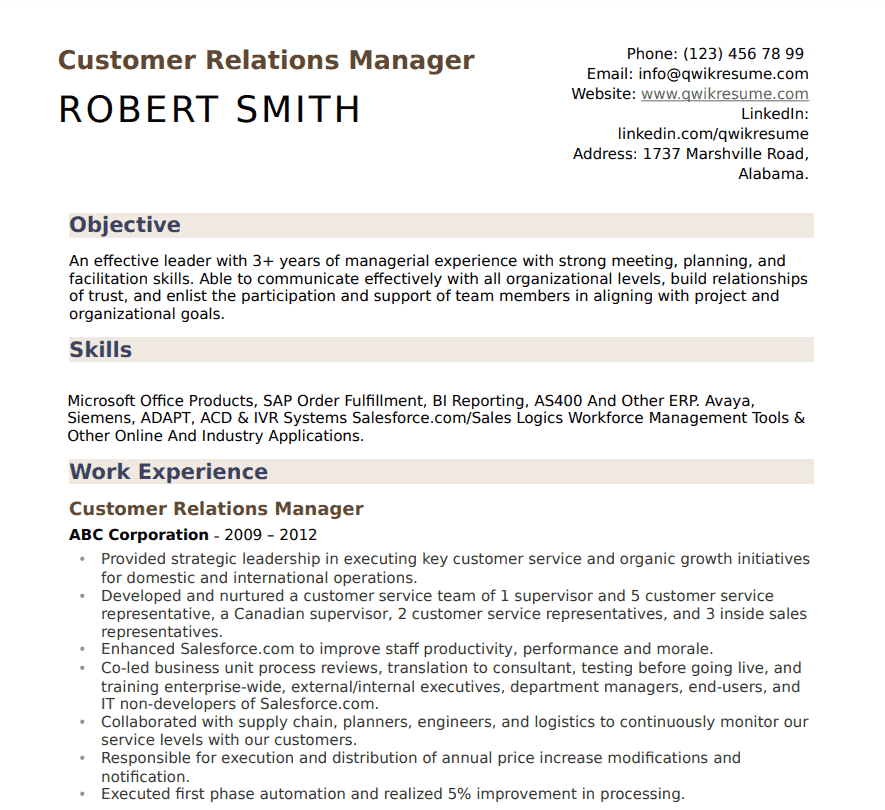
List your responsibilities for each work experience with bullet points. Be sure to start each sentence with power verbs like “achieved”, “developed”, and “led”. An example is in the resume example above. Include the CRM software you implemented and the results you had.
Most people prefer listing job responsibilities together with achievements. Others take the option of highlighting their key deliverables separately from their work experience. Either way works. And if you don’t have any professional experience, add your volunteer work and internships.
CRM experience skills
Complement your work experience with a skills section that emphasizes your CRM experience.

The resume sample above does a remarkable job of displaying the applicant’s full capability—CRM software experience, software proficiency, exact processes mastered, and soft skills.
Also, include other applicable skills we mentioned earlier. This includes interpersonal, communication, analytical, and leadership skills.
Certifications and education
This section features practical and theoretical knowledge you’ve acquired. Your highest degree (university-level) should come first before others. Add relevant badges and awards, too.
For your certifications, aim for industry-recognized licenses from credible organizations. This is a major booster as it shows your CRM software proficiency.
The Best Resume Templates for CRM Experience
Having a great resume matters. Period.
Here are a few impressive CRM experience resumes.
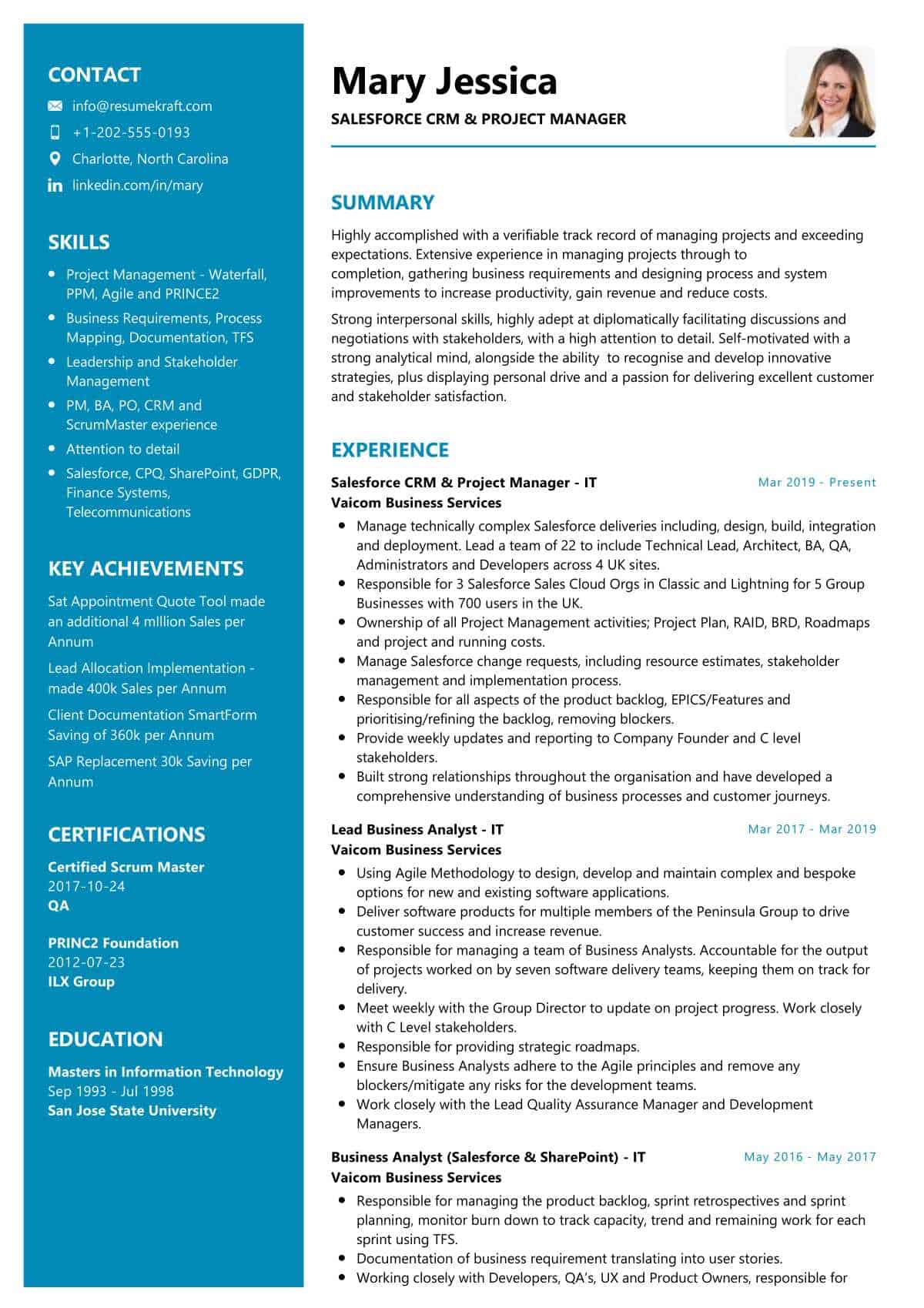
This clean resume includes a summary of achievements at the top, followed by the person’s experience at various establishments. On the left-hand side, key details, contact info, and other valuable information are presented well and help catch the recruiter’s eye.
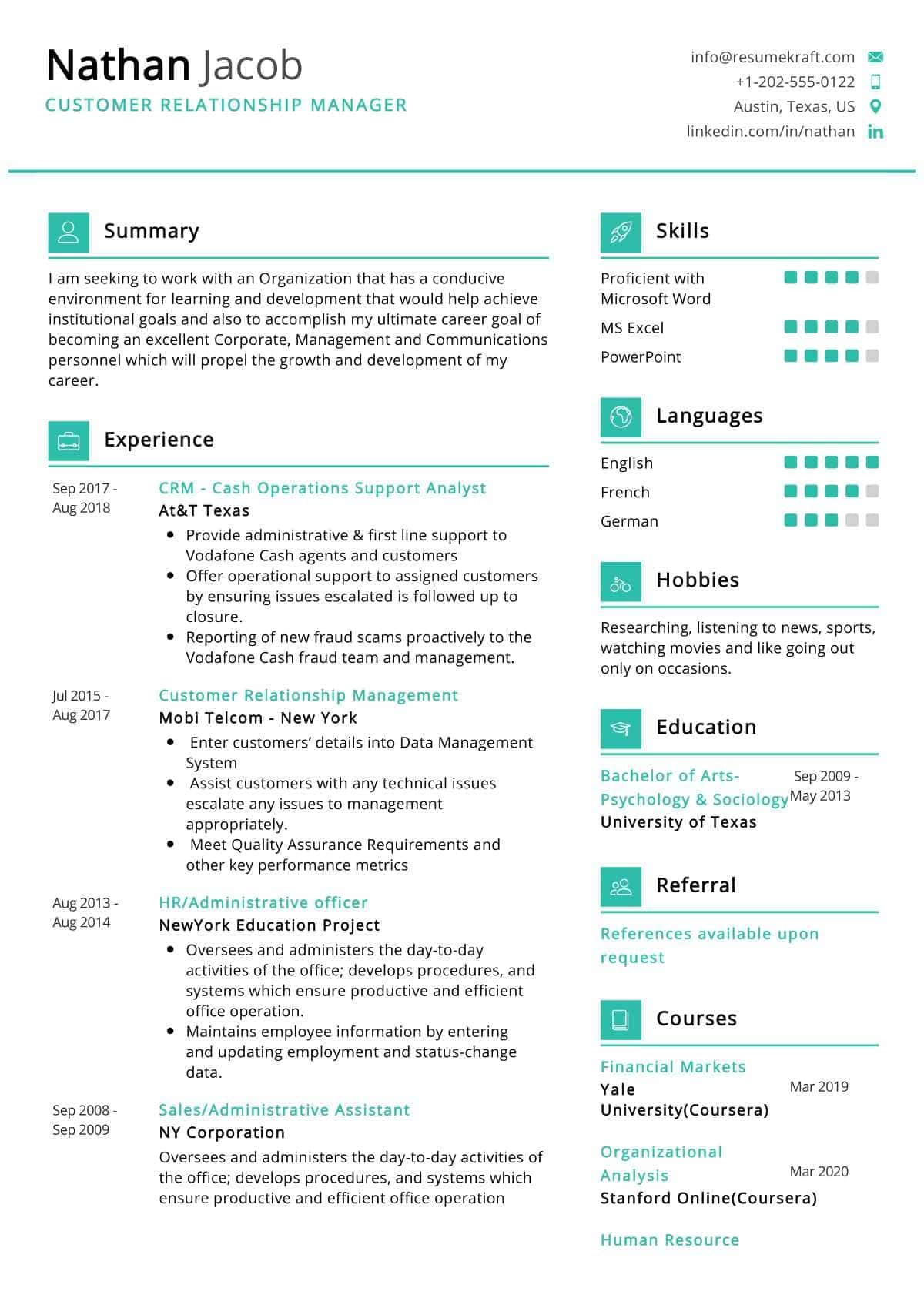
This CRM manager resume displays skill levels visually — a great way to add color and personality to an otherwise boring document.
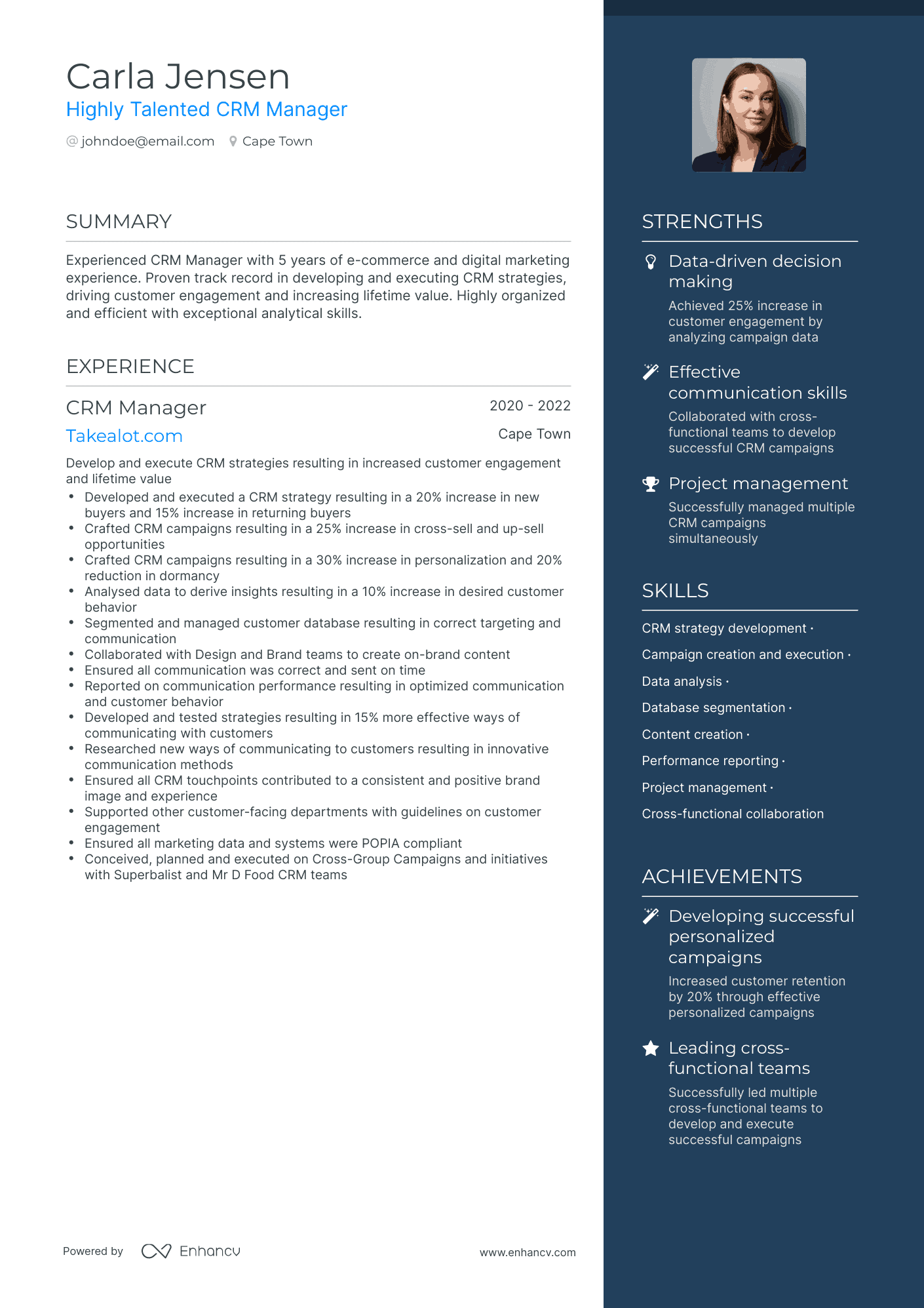
Here’s another 2-column resume from Enhancv. Adding a ‘Strengths’ section and the symbols offer a nice touch, enhancing the quality of the CRM manager’s resume.
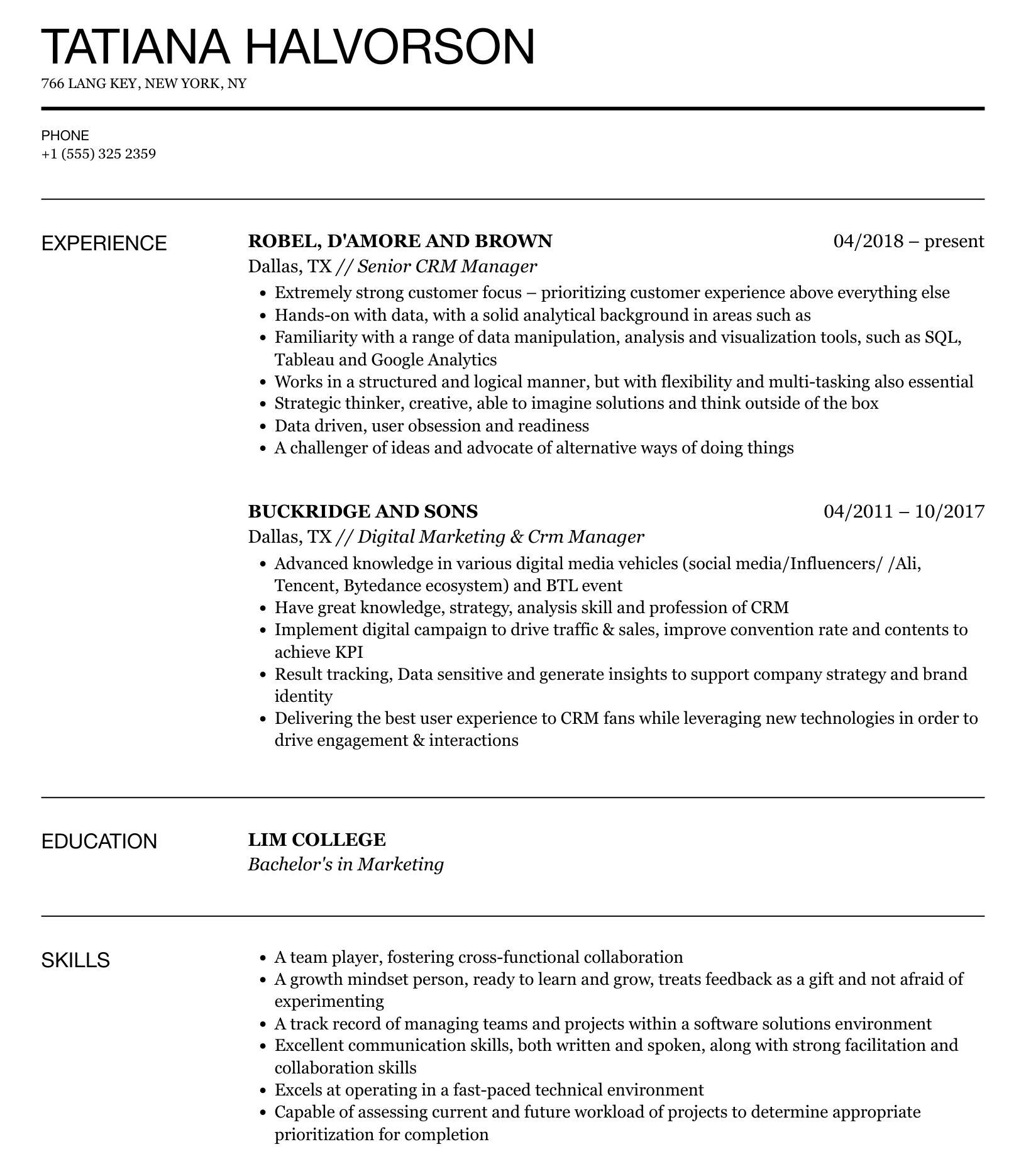
You also can’t go wrong with a classic resume. This can be suitable for more experienced candidates, as these templates tend to have more space for content.
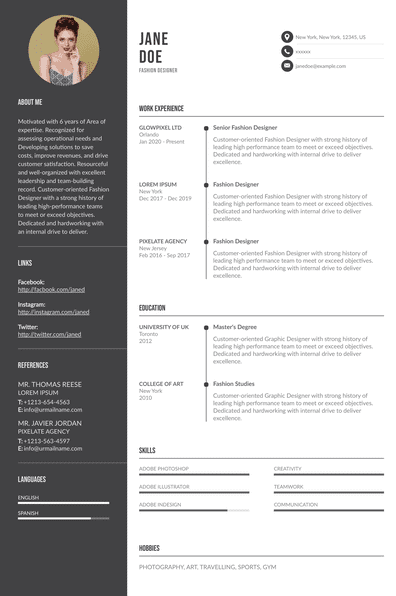
The CRM resume above is perfect if you want to go all in. The contrast, the experience timelines, the progress bar, and the striking photo all come together to offer an aesthetically pleasing resume that will catch any recruiter’s eye.
How To Make Your CRM Resume ATS Compatible?
An applicant tracking system (ATS) is a tool that helps businesses and companies streamline the recruiting process and track all communications. This includes organizing candidate data based on skills, experience, and achievements and helps filter applicants.
An applicant tracking system also reads resume applications and chooses the best ones. In many cases, the recruiter won’t even check a resume that hasn’t passed the ATS.
That’s why you need an ATS-optimized resume.
Since ATS picks the best CRM applications by checking every resume against the job description, your resume must have the right keywords and formatting to help the ATS parse correctly.
How to write a winning ATS-friendly resume
The following tips can help you beat the ATS.
1. An ATS-friendly resume template is the best option
This is the most important thing when it comes to beating the ATS. Complicated formatting can confuse the ATS, so it is best to avoid having tables, headers, footers, symbols, images, and other elements that the ATS may be unable to parse.
That’s why you should follow the two-resume rule: one resume for the ATS and one for the hiring manager.
The second one can have more style, formatting, and visuals.
2. Use standard headings for your resume sections
Since the ATS uses section headings to parse and navigate your resume, it is important to have clear section headings.
You can achieve this by calling the ‘Contact Information’ heading as such instead of ‘How to reach me.’
Here are a few standard resume section headings:
- Summary
- Contact information
- Work experience
- Skills
- Education
- Achievements
3. Add the right keywords to your resume
The main task of an applicant tracking system is to parse the resume document and compare it with the job description. That’s why your resume should be tailored for each position.
In a nutshell, the ATS looks for keywords.
Go through the job description and take into account the responsibilities, the qualifications, and the experience. This is what the ATS is looking for. Customize your resume based on these keywords and use the exact phrase.
For example, adding job-specific keywords in your resume, such as “Salesforce,” “CRM automation,” and “customer retention,” will make your resume ATS-friendly for CRM roles.
Don’t forget to tailor your resume according to the job role you are applying for. Adding the same keywords for all the roles might not be a great idea!
4. Use full titles
Make sure you add the full titles, like Chief Executive Officer, instead of CEO. Use JavaScript instead of JS.
Sometimes, abbreviations are fine. I’m talking HTML!
Do not have any grammatical error
Your resume should have zero grammatical and spelling errors.
Yes, zero.
Recruiters won’t give a second glance to resumes with errors, but the ATS won’t even accept a resume with spelling errors.
Use a tool like Grammarly to check for errors and rectify them.
5. The Reverse Chronology Hack
Your work experiences should appear in reverse chronological order. In simple words, it means that your last job appears first, and the first job is at the bottom.
Here’s an example of how you can implement the reverse chronology hack for your resume:

Best ATS resume checkers for job applicants
We have two of the best ATS resume checkers:
1. Resume Worded
Resume Worded is an online ATS resume checker that lets you compare your resume and optimize it for ATS. You can also tailor the resume based on the job description.
 2. Zety
2. Zety
Zety is another popular online resume checker that parses your resume document and offers a score. It also has a built-in grammar checker and offers tips and resources.
Wrap Up
Business owners want marketers, salespeople, and customer success specialists with CRM experience. Why?
Generating new businesses and keeping existing customers happy remains a primary business goal. With the right CRM experience, you can become the go-to person for building customer relationships and driving impressive business results.
But first, you have to be open to learning.
Use the online resources we’ve shared in this piece, take courses, and continue learning to make yourself the best candidate for the CRM-related roles you apply for.
And if you want to speed up your CRM learning experience, just sign up for a free EngageBay account so you can practice what you learn in real-time.
More CRM-related Blogs
- 9 Proven CRM Techniques To Improve Your Marketing ROI
- 9 Challenges of CRM Implementation & How to Dust Them Off
- These CRM Modules Can Skyrocket Your Customer Loyalty
- The Best CRM Tools for Small Business Owners
Content updated for freshness and SEO by Swastik Sahu.



